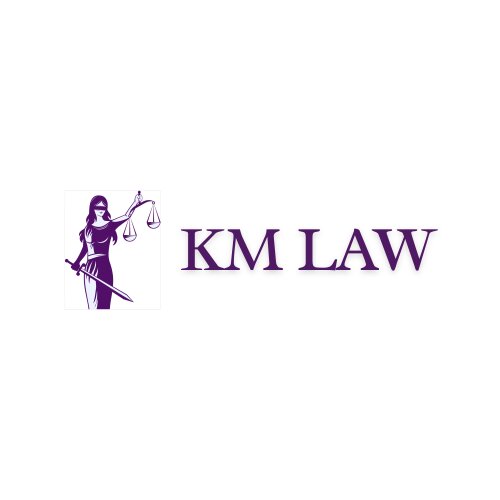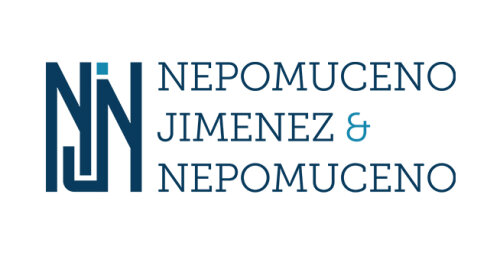Best Securities Lawyers in Philippines
Share your needs with us, get contacted by law firms.
Free. Takes 2 min.
Or refine your search by selecting a city:
List of the best lawyers in Philippines
About Securities Law in Philippines
Securities law in the Philippines governs the regulation of stocks, bonds, and other financial instruments that provide the holder with a form of economic or financial interest in an organization. The primary intent of these laws is to ensure transparency, fair trading, and to protect investors from malpractices. The main body governing securities in the Philippines is the Securities and Exchange Commission (SEC), which is responsible for both the enforcement and formation of regulations pertaining to securities trading and financial disclosures.
Why You May Need a Lawyer
Engaging with securities, whether through investment or issuance, involves complex legal frameworks and significant financial risks. Here are some common situations where legal expertise may be beneficial:
- If you are issuing securities to raise capital for your company and need help ensuring compliance with regulations.
- When investing in the stock market or other securities and you require guidance on regulatory requirements and potential risks.
- If you suspect that you have been a victim of securities fraud or market manipulation.
- When involved in disputes related to securities transactions, either as an investor or an issuer.
- If you are navigating mergers, acquisitions, or any significant corporate actions that impact shareholder value.
Local Laws Overview
The regulatory environment for securities in the Philippines is primarily outlined by the Securities Regulation Code (SRC), which establishes the framework for securities registration, market regulation, and protection of investor rights. Key aspects include:
- The requirement for registering securities before offering them for sale to the public, unless exempted.
- The necessity for full disclosure of pertinent information in any securities offerings or registration statements.
- Provisions against insider trading, ensuring that all investors have equal access to important company information.
- Strict regulations governing brokerage firms, investment banks, and other financial intermediaries.
- The mandates for public companies to file regular financial and operational reports to keep the investing public informed.
Frequently Asked Questions
What constitutes a security under Philippine law?
Securities can include stocks, bonds, debentures, notes, or any other financial instruments that represent an investment and an expectation of profit, typically through the efforts of a third party.
Do I need to register my securities with the SEC?
Yes, generally, all securities offered for public sale must be registered with the SEC, unless they qualify for an exemption outlined in the Securities Regulation Code.
What is insider trading, and why is it illegal?
Insider trading involves buying or selling securities based on non-public, material information. This practice is illegal as it undermines market integrity and fairness.
How can I protect myself from securities fraud?
Stay informed by reviewing company disclosures, working with reputable brokerage firms, and consulting legal professionals when in doubt.
What role does the SEC play in securities regulation?
The SEC enforces laws to protect investors, maintain fair, orderly, and efficient markets, and facilitate capital formation.
Can foreign investors buy securities in the Philippines?
Yes, foreign investors can purchase securities within allowable limits and should comply with local regulations, including registration with the appropriate authorities.
What are my options if I become a victim of securities fraud?
You can file a complaint with the SEC, explore arbitration or pursue legal action with the assistance of a qualified securities lawyer.
What disclosures are companies required to make when offering securities?
Companies must provide a prospectus containing details about the company’s financial health, management, risks, and other material information.
Are there penalties for not complying with securities regulations?
Yes, penalties can include fines, imprisonment, and being barred from future participation in securities markets.
How often must public companies disclose financial statements?
Public companies are required to disclose their financial statements quarterly and annually to keep the investing public informed.
Additional Resources
For more detailed information about securities laws in the Philippines, you can consult the following resources:
- Securities and Exchange Commission (SEC): The primary regulatory body for securities and investments in the Philippines.
- Philippine Stock Exchange (PSE): Provides updates, rules, and notices relevant to publicly traded companies.
- Department of Finance (DOF): Offers guidance on financial policy, including aspects related to securities and investments.
Next Steps
If you need legal assistance in securities, consider taking the following steps:
- Contact a lawyer with expertise in Philippine securities law to get professional advice tailored to your situation.
- Prepare all necessary documentation that pertains to your securities transactions or concerns for your legal consultant.
- To ensure you understand your rights and obligations, educate yourself on the basics of securities trading and the relevant laws applicable in the Philippines.
Lawzana helps you find the best lawyers and law firms in Philippines through a curated and pre-screened list of qualified legal professionals. Our platform offers rankings and detailed profiles of attorneys and law firms, allowing you to compare based on practice areas, including Securities, experience, and client feedback.
Each profile includes a description of the firm's areas of practice, client reviews, team members and partners, year of establishment, spoken languages, office locations, contact information, social media presence, and any published articles or resources. Most firms on our platform speak English and are experienced in both local and international legal matters.
Get a quote from top-rated law firms in Philippines — quickly, securely, and without unnecessary hassle.
Disclaimer:
The information provided on this page is for general informational purposes only and does not constitute legal advice. While we strive to ensure the accuracy and relevance of the content, legal information may change over time, and interpretations of the law can vary. You should always consult with a qualified legal professional for advice specific to your situation.
We disclaim all liability for actions taken or not taken based on the content of this page. If you believe any information is incorrect or outdated, please contact us, and we will review and update it where appropriate.
Browse securities law firms by city in Philippines
Refine your search by selecting a city.
















